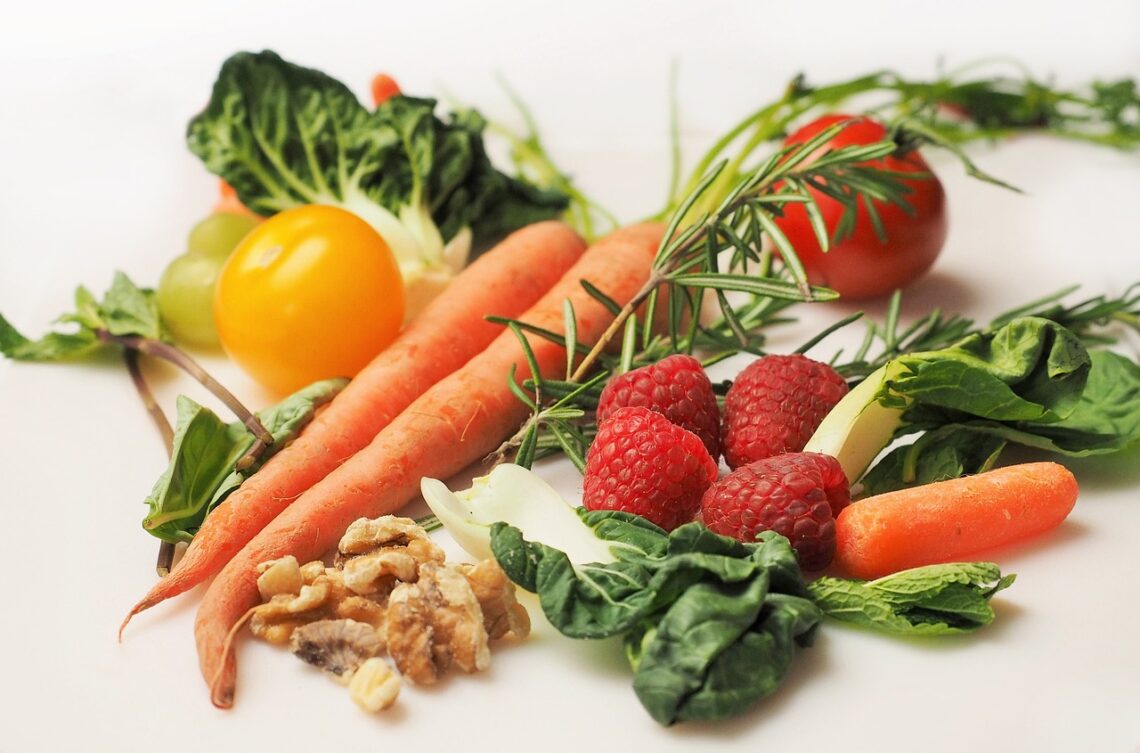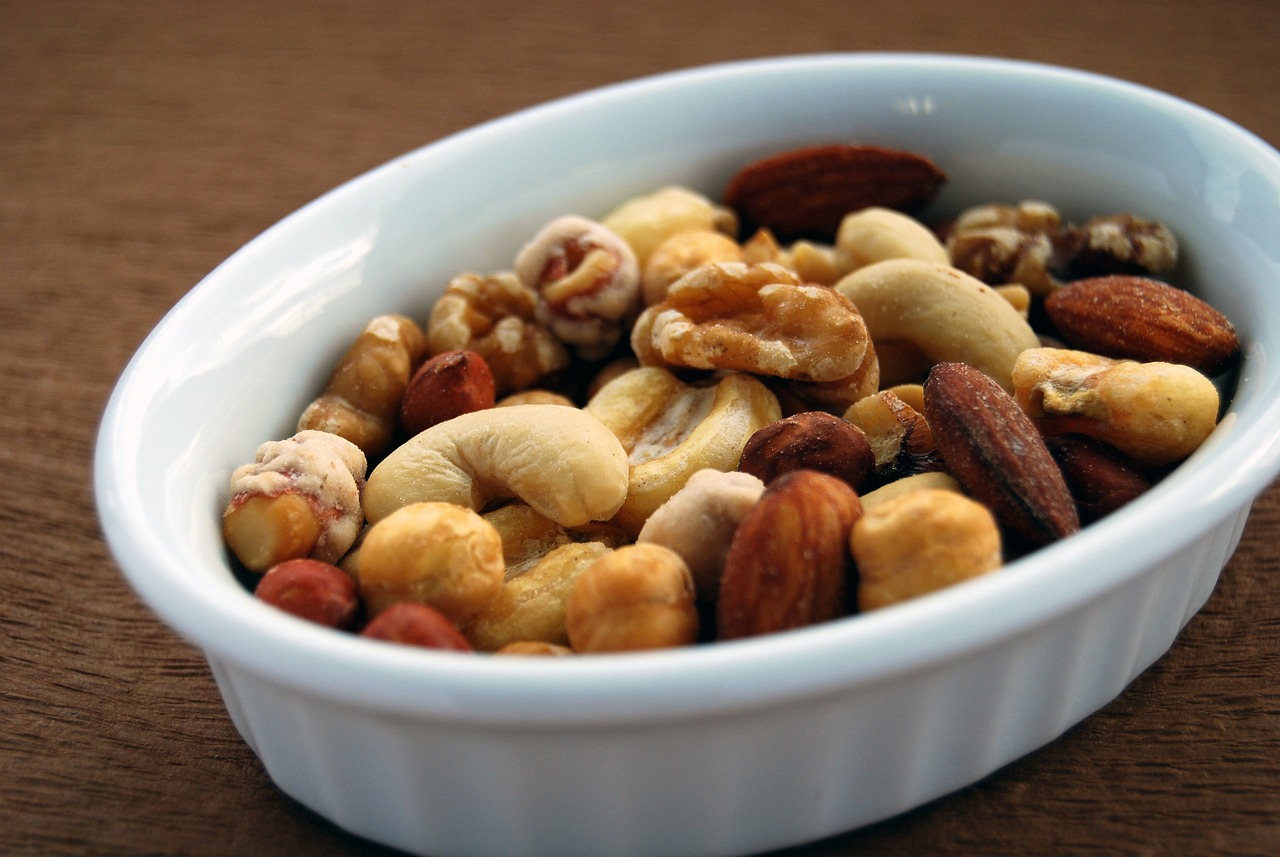
Fuel Your Body Right: Top 10 Foods for Optimal Nutrition
As the saying goes, “You Are What You Eat,” and when it comes to maintaining a healthy body and mind, nutrition plays a vital role. In our busy lives, it’s easy to opt for convenience foods that lack essential nutrients.
However, Eating a variety of nutrient-dense foods can help prevent chronic diseases and promote optimal health. These foods not only provide essential vitamins and minerals but also boast health-boosting properties.
To help you make informed choices, we will be exploring the top 10 foods that offer exceptional nutritional value in this blog. These foods are not only delicious but also provide a wide range of essential nutrients, vitamins, and minerals that support various bodily processes.
From leafy greens that boost immunity to berries packed with antioxidants, and from fish rich in omega-3 fatty acids to whole grains that provide sustained energy, incorporating these foods into your diet can help you achieve optimal nutrition and promote a healthier, more vibrant life.
Here are the top 10 foods that can fuel your body right and provide optimal nutrition:
1. Leafy Greens:
Leafy greens are one of the most nutrient-dense foods you can eat. They are high in vitamins A, C, and K, as well as folate, iron, and calcium. Some of the best leafy greens to consider include spinach, kale, collard greens, and arugula.
You can incorporate these into your diet by adding them to salads, smoothies, and soups, or by using them as a base for wraps.
2. Berries:
Berries are an excellent source of antioxidants, which help protect against cell damage. They are also high in vitamin C, fiber, and folate. Some of the best berries to consider include blueberries, strawberries, raspberries, and blackberries.
You can add berries to your diet by adding them to yogurt, oatmeal, and smoothies, or by eating them as a snack.
3. Whole Grains:
Whole grains are an excellent source of fiber, which can help improve digestion and lower the risk of chronic diseases. They are also high in B vitamins and minerals such as magnesium and selenium.
Some of the best whole grains to consider include quinoa, brown rice, whole-wheat bread, and oats. You can incorporate whole grains into your diet by replacing refined grains with whole grains, such as by switching from white rice to brown rice or choosing whole-wheat pasta over regular pasta.
4. Nuts and seeds:
Nuts and seeds are excellent sources of healthy fats, protein, and fiber. They also contain various vitamins and minerals, such as vitamin E, magnesium, and potassium.
Incorporating nuts and seeds into your diet can help lower cholesterol levels, reduce the risk of heart disease, and aid in weight management. When it comes to types of nuts, almonds, walnuts, and pistachios are all great options.
For seeds, consider chia seeds, flaxseeds, and pumpkin seeds. You can enjoy nuts and seeds as a snack or incorporate them into meals, such as by adding them to salads, oatmeal, or yogurt.
You can also make homemade nut butter or seed butter and use it as a spread on toast or crackers. Another creative way to incorporate nuts and seeds into your diet is by making your own trail mix with your favorite nuts and seeds along with dried fruit for a sweet and savory snack.
5. Legumes:
Legumes, such as beans, lentils, and chickpeas, are excellent sources of protein, fiber, and various vitamins and minerals, such as iron and potassium. Incorporating legumes into your diet can help lower cholesterol levels, regulate blood sugar levels, and aid in weight management.
Consider adding black beans to your salads or making lentil soup. Chickpeas can be roasted and enjoyed as a snack or used to make homemade hummus. You can also use legumes as a meat substitute in dishes such as tacos, chili, or spaghetti sauce.
6. Fatty Fish:
Fatty fish, such as salmon, tuna, and sardines, are rich in omega-3 fatty acids, which are essential for brain health and may reduce the risk of heart disease. They are also an excellent source of protein, vitamin D, and minerals such as calcium and iron.
Consider adding salmon to your diet by grilling or baking it and serving it with a side of vegetables. You can also enjoy canned tuna on a sandwich or use it to make tuna salad. Sardines can be added to salads or enjoyed as a snack with crackers.
7. Colorful Vegetables:
Carrots, bell peppers, sweet potatoes, and tomatoes, among others, provide a wide range of vitamins, minerals, and antioxidants. Carrots are rich in beta-carotene, which supports eye health and boosts the immune system.
Bell peppers, especially the red and yellow varieties, are high in vitamin C, which helps protect against cell damage and promotes collagen production for healthy skin. Sweet potatoes are an excellent source of fiber and contain important nutrients like vitamin A and potassium.
Consider adding bell peppers to your stir-fry or using them as a dip for hummus. Carrots can be roasted as a side dish or enjoyed raw with a dip. Sweet potatoes can be baked and served as a side dish or mashed as a substitute for traditional mashed potatoes.
8. Fermented Foods:
Fermented foods, such as yogurt, kefir, and sauerkraut, contain beneficial bacteria known as probiotics. These bacteria can help improve gut health, boost the immune system, and aid in digestion.
Consider adding yogurt or kefir to your breakfast routine by adding it to smoothies or enjoying it with fruit and granola. Sauerkraut can be added to sandwiches or served as a side dish with a meal.
9. Spices and Herbs:
Spices and herbs, such as turmeric, cinnamon, and garlic, are a great way to add flavor to your meals while also providing various health benefits. Turmeric has anti-inflammatory properties, cinnamon can help regulate blood sugar levels, and garlic can boost the immune system.
Consider adding turmeric to your morning smoothie or using it to season roasted vegetables. Cinnamon can be added to oatmeal or used to flavor coffee. Garlic can be added to various dishes, such as pasta or stir-fry.
10. Yogurt:
Yogurt is a dairy product that is made by fermenting milk with live bacteria cultures, which creates a creamy and tangy product. Yogurt is an excellent source of protein, which is essential for building and repairing tissues, supporting muscle growth, and maintaining a healthy immune system.
Protein also helps promote satiety, making yogurt a satisfying snack or addition to meals. Calcium in yogurt plays a vital role in maintaining strong bones and teeth, supporting nerve function, and aiding in muscle contractions.
Consuming calcium-rich foods like yogurt can help meet your daily calcium needs. The presence of probiotics in yogurt makes it easier to digest, particularly for individuals who are lactose intolerant.
It can be enjoyed on its own, mixed with fruits or honey for added flavor, or used as a base for smoothies, dressings, and marinades. It is a versatile food that can be incorporated into a variety of dishes, both sweet and savory.
While yogurt offers numerous health benefits, it’s important to choose varieties without added sugars or artificial additives to maximize its nutritional value.
Conclusion:
The food we consume fuels our bodies and provides the necessary nutrients for optimal functioning.
Incorporating these nutrient-dense foods into your diet can help you achieve optimal nutrition, support your overall well-being, and fuel your body.
While these top 10 foods for optimal nutrition provide a strong foundation, it’s essential to consider individual dietary needs, preferences, and any specific health conditions.
Consulting with a registered dietitian or healthcare professional can provide personalized guidance and support for achieving and maintaining optimal nutrition.


You May Also Like

An Honest Review of DepiWhite Skin Brightening Cream
25 July 2024
Must-Visit Most Beautiful Villages in India: Escape the Ordinary
22 March 2025

